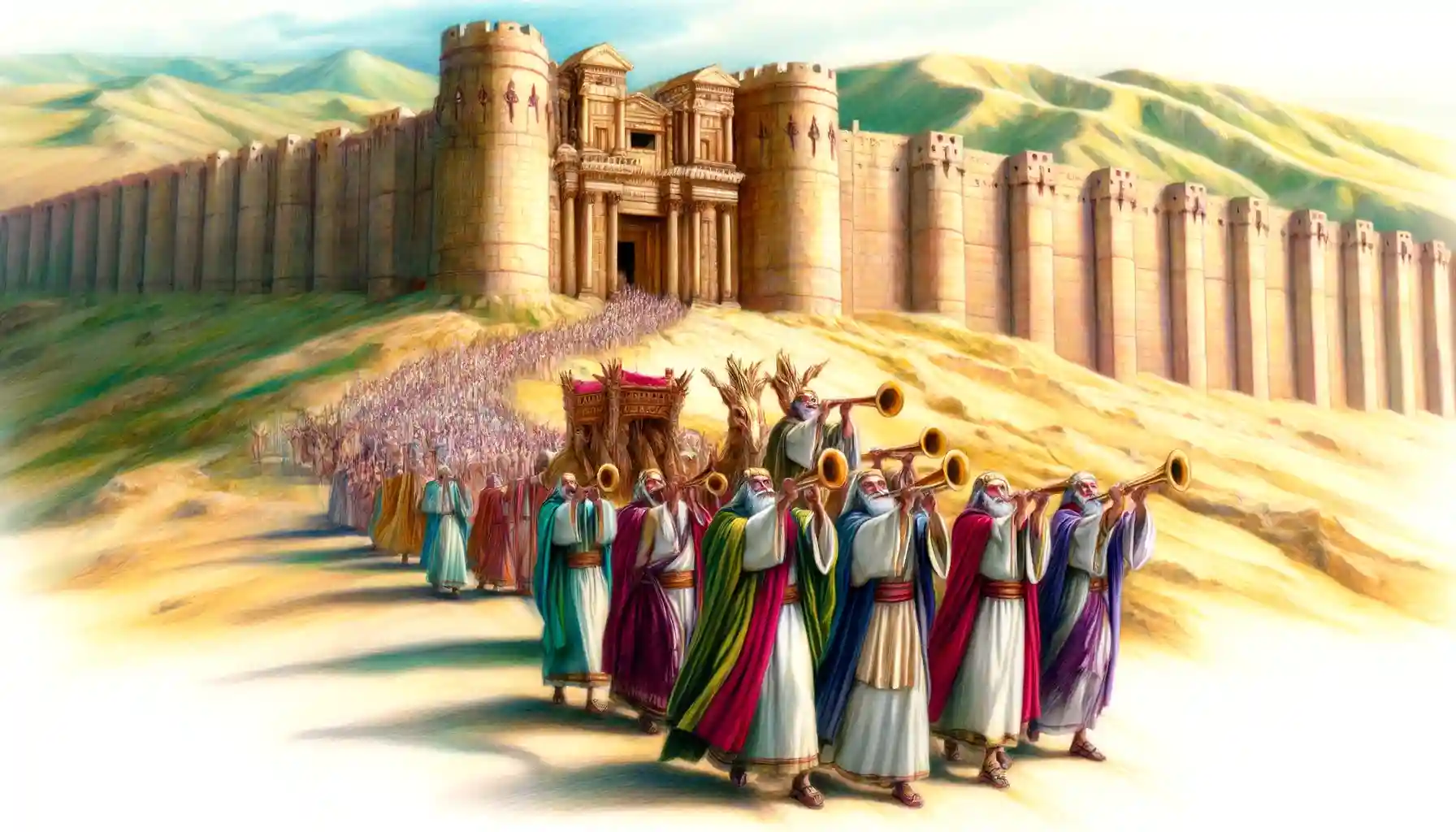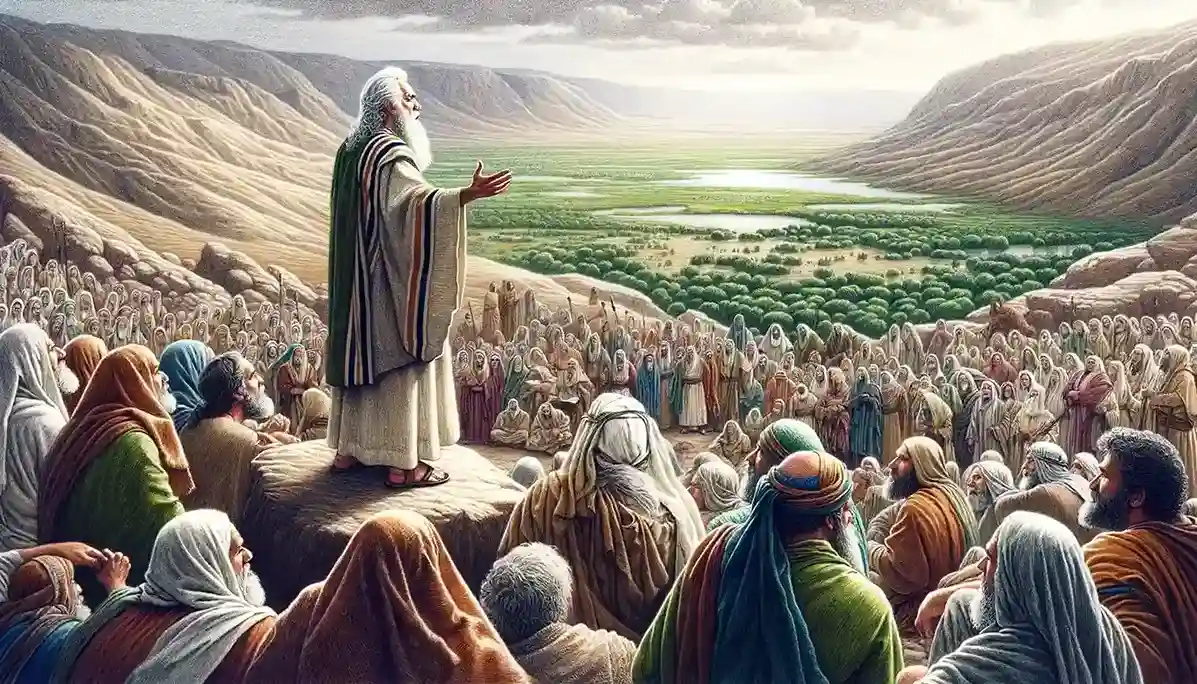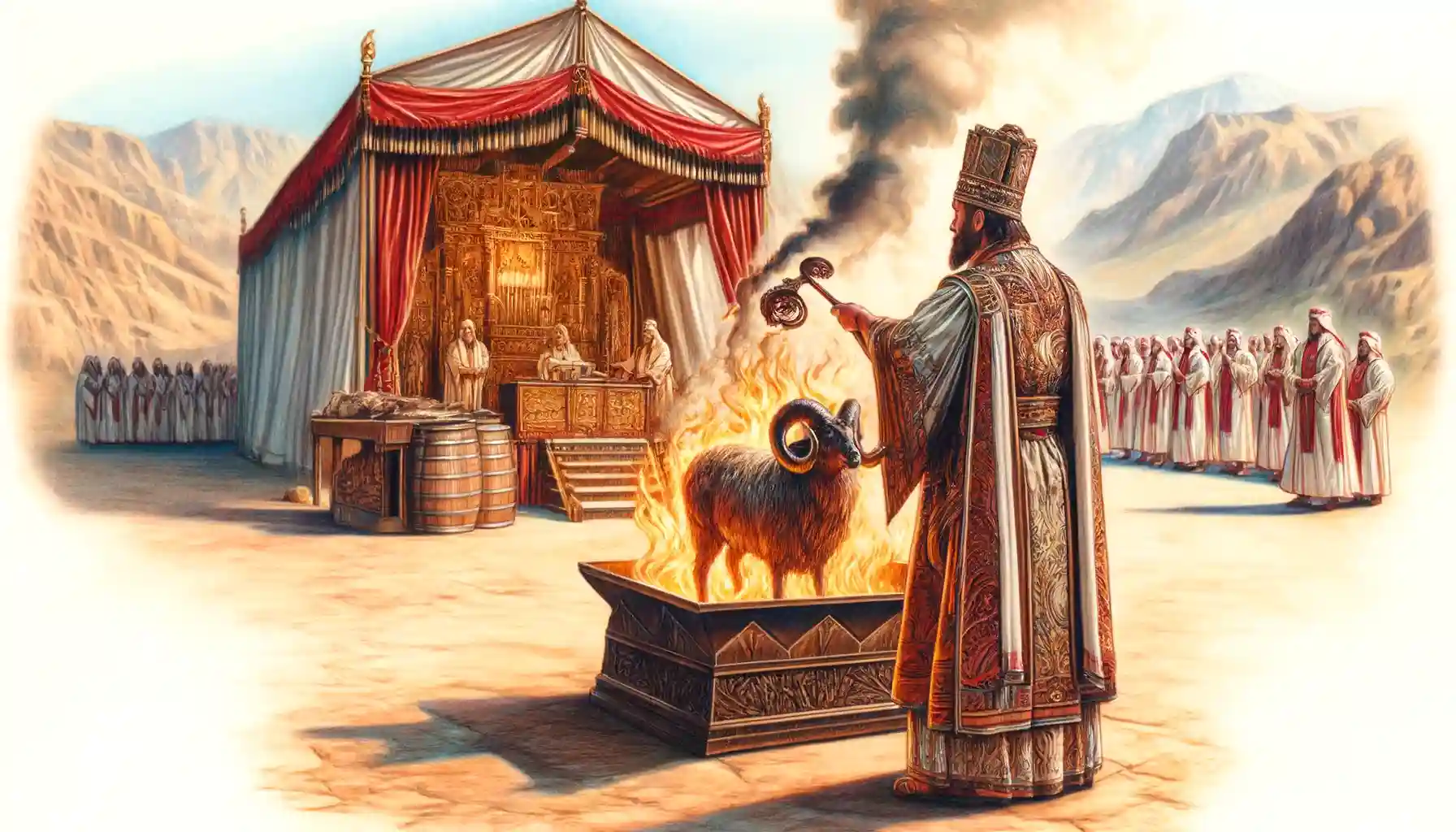The Book of Joshua provides a narrative transition from the nomadic wanderings of the Israelites to their establishment as a settled community in a promised land, driven by divine guidance and covenantal fidelity.
The Book of Deuteronomy, structured as Moses’ farewell addresses to the Israelites, reiterates the Law and emphasizes a covenantal relationship with God, urging adherence to His commandments as the key to blessing and prosperity in the Promised Land.
The Book of Numbers narrates the Israelites’ tumultuous journey through the wilderness, detailing their organization, rebellions, and God’s provision and punishment, as they prepare to enter the Promised Land.
The Book of Leviticus outlines detailed laws and rituals for the Israelites, emphasizing purity, moral conduct, and holiness to maintain their covenantal relationship with a holy God.
The Book of Exodus chronicles the deliverance of the Israelites from slavery in Egypt, their covenant relationship with God at Mount Sinai, and their journey towards the Promised Land, emphasizing God’s faithfulness and the formation of a holy nation under His laws.
The Book of Genesis explores themes such as creation, the fall, redemption, covenant, monotheism, sovereignty, sin, the patriarchs, the Imago Dei, messianic hope, and serves as a theological manifesto, spanning narratives from primeval to patriarchal history, and addressing deep questions about biblical theology, human nature, divine purpose, moral responsibility, faithfulness, genealogies, and contrasts with ancient Near Eastern myths.






